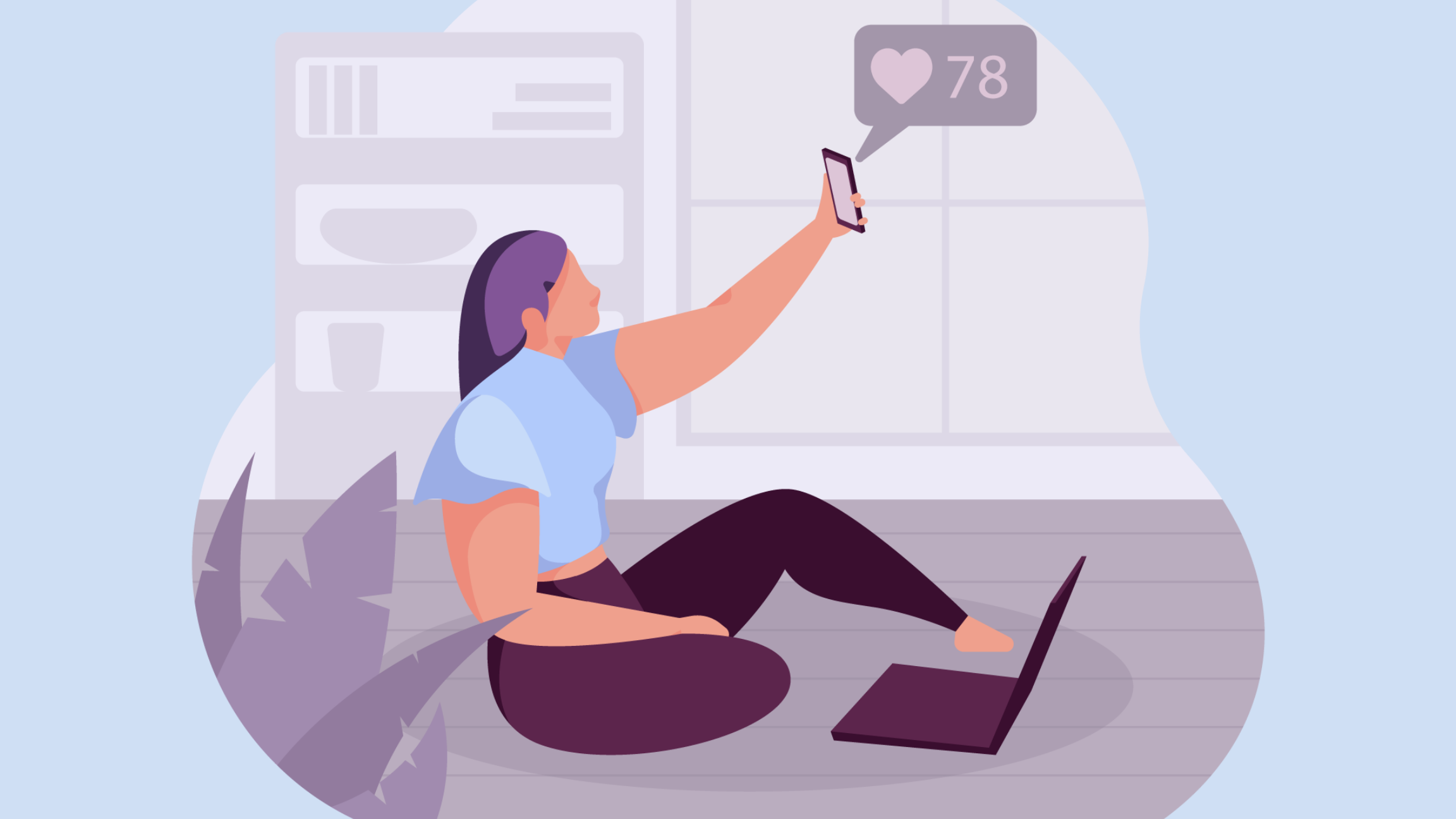Psychologist Pia Linden explores with us the reasons behind interpersonal comparisons and shares some good advice to swing this tricky habit in our favour.
The roots of comparison
If you have ever wondered “is it just me?”, let us reassure you that the answer is no. The reason why you may compare yourself to others is a very common human tendency and lays its roots in evolution.
“Humans are ‘social animals’ and our ancestors have always lived and survived in groups”, explains Pia. “Comparing yourself to others serves as an orientation to see where we stand in a group and whether we need to take some action to improve our performance or position.”
In psychology, Festinger’s social comparison theory states that humans can’t define themselves independently, but only in relation to other individuals. So, funnily enough, comparing yourself to others is necessary to find better answers to the timeless question about who we are.
According to this approach, we can identify two types of social comparison:
- The Upward comparison: when we compare ourselves to people we think are better than us;
- The Downward comparison: when we compare ourselves to people we consider worse than us.
“Comparing ourselves is necessary to find better answers to the timeless question about who we are.”
The motivation behind these forms of comparisons varies according to many factors. “It would be too easy to say one leads to A, the other to B”, clarifies Pia. “The consequences of comparison depend on what type of person you are.”
In the first case, we might use upward comparison to evaluate our performance (self-evaluation) and change our behaviour to perform better (self-improvement). Differently, with the downward comparison, we are usually driven by a desire for self-enhancement, and we do this to feel better about ourselves and our lives.
Now, all of this might sound confusing, we know! On one side we have a biological need to compare ourselves with others, while on the other we also are aware that comparison often leads to challenging feelings. What now? What’s the right way to look at it?
The dark side of comparing yourself to others
Overall, comparing ourselves to others has proven to have a strong effect on our self-image, self-esteem, and motivation. We often skew our judgement by comparing our lesser qualities to someone’s best qualities. Which is like judging a fish by its ability to climb a tree.
“Another dimension could be whether the object of our comparison is accurate, as in: is it realistic to compare ourselves to this person?” points out Pia. “Again, while some people might be very motivated by aspiring to become an Olympic athlete, others might have this feeling of “I am never going to be able to do that…” and lose motivation”.
And while the psychological theories behind comparisons have been present throughout our entire history, our social structures have tremendously changed since ancient times. In fact, the opportunities to put into practice these comparison habits have become incredibly high during recent years, also thanks to our use of social media.
Within the online world, we are constantly exposed to other people’s lives, successes, and achievements. We have an endless number of things to compare ourselves to and most of the time these are not beneficial to us.
Reflect on this: have you ever found yourself scrolling through your feed as you soar above the clouds and felt sad or envious about someone’s supposedly better-body, better-relationship, better-job, better-house, and so on?
Well, the problem here is that it is very easy to forget that what we see on social media is only the highlights of other people’s lives and does not usually showcase their real, day-to-day lives.
Yet, despite it being an inaccurate comparison, many of us still tend to fall into this trap and evaluate our lives based on what we see from others. Questioning the extent to which this comparison mechanism is actually doing us good – both online and offline – can be the first step towards being less sensitive to its negative effects.
Comparing yourself to others has a silver lining
One of my favourite sayings reads: to shine your brightest light is to be who you truly are. As such, social comparison is not always automatically bad. It can also have beneficial effects when used in a helpful way, for example, by getting inspired by others or by getting guidance.
Comparisons can also make us realise where we stand in life and where we would like to get in the future. They can serve as a tool to measure our progress and as a valuable motivator for self-improvement.
The key world to achieving this, according to Pia? A growth mindset!
Turn your gaze back on yourself
When the urge to compare yourself with others comes up and brings you no benefit, these are some tips which might help you change your perspective and refocus from the outside to the inside:
- Remind yourself that you are already good enough. Focus on your strengths and (past) successes.
- Set realistic goals and think about what actions to take to achieve them. What works better for you?
- Avoid triggers of harmful comparison, if possible. For example, think about decreasing your social media intake.
- Instead of being goal-oriented, try to shift your focus to being process-oriented. Then, compare yourself to your past self: how were you doing last year? What have you learned since then?
- Look at the whole picture: are you generalising or assuming something incorrect about the person I am comparing myself to?
Being you is your superpower
Comparing yourself to others is a normal process of human cognition. While not all comparisons are necessarily unfavourable, it is important to regularly look inward to confront any possible negative emotions they may cause.
If you catch yourself slipping into this pattern, gently redirect your energy towards what really matters to you. This is an ongoing practice that will help you recognize when this habit might become harmful to your mental health.
Eventually, there is no one alive ‘who is you-er than you’. So, why not dare to be the best version of yourself?
For more advice on managing challenging emotions and increasing self-confidence, our psychologists are happy to help. Book a consultation today.





